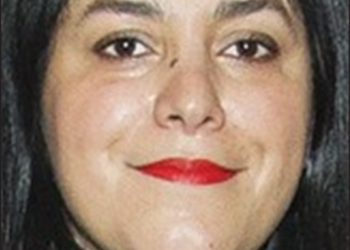was ordered to remove her headscarf or leave the store.
Within 48 hours, the company management suspended the clerk and apologized to the shopper—although the shopper said she wasn’t satisfied with that.
A cashier at Fas Mart, a Richmond-based chain of more than 200 convenience stores located primarily in Virginia, Delaware, Maryland and Connecticut, reportedly told a Muslim hairstylist who was trying to purchase items from the store that she had to remove her hejab if she wanted to be served.
“When I walked into the store, the cashier, she asked me to remove my kimar, my scarf,” 33-year-old Tralesha Faison told The Washington Post.
The cashier reportedly told Faison that the reason for the demand was that the store’s security cameras would not be able get a clear picture of the Muslim customer’s face, but the woman said her face was completely visible.
The woman told the Council on American Islamic Relations (CAIR) that she pulled back her scarf to expose her hairline. But she said the cashier continued to refuse service, and told her to leave the store.
“I was humiliated, discriminated against, and I was embarrassed,” Faison said.
After CAIR called on Fas Mart to offer an apology to the woman, the chain issued a statement November 11 calling the incident “regrettable.”
Company spokesperson Tom Terry told The Washington Post, “From what I understand, she [the cashier] said she was just doing what she was trained to do, which was to make sure that the face of this customer was visible for purposes of our security cameras and for the safety of our workers and other customers.”
Faison returned to the store the day after the incident and received an apology from the store manager. But she told The Post that she wanted the entire company to apologize, not just the store manager. She said she was considering suing the company, as Title II of the Civil Rights Act of 1964prohibits discrimination on the basis of religion in places of public accommodation and service.
Fas Mart said it considered its statement as its “formal written apology,” suspended the clerk until an investigation could be carried out and said it would seek advice from CAIR on how to train its staff to deal with Muslim-American customers.
CAIR National Communications Director Ibrahim Hooper, said, “This incident is part of a growing pattern of American Muslims being targeted in the course of conducting ordinary business in their daily lives.”
Muslim women wearing hejab have been discriminated against across the United States. On September 11 of last year, a Muslim woman wearing an Islamic headscarf in Louisiana was regarded as a “security breach” after she brought food to workers at the East Baton Rouge Emergency Operations Center. The incident resulted in the demotion of one of the officials at the center.
According to the US Equal Employment Opportunity Commission (EEOC), the number of complaints of unlawful discrimination in the workplace against Muslim employees has more than doubled in the last five years.


















